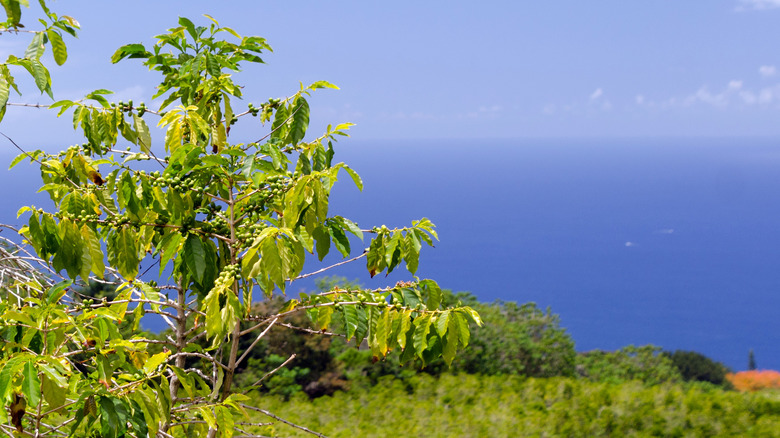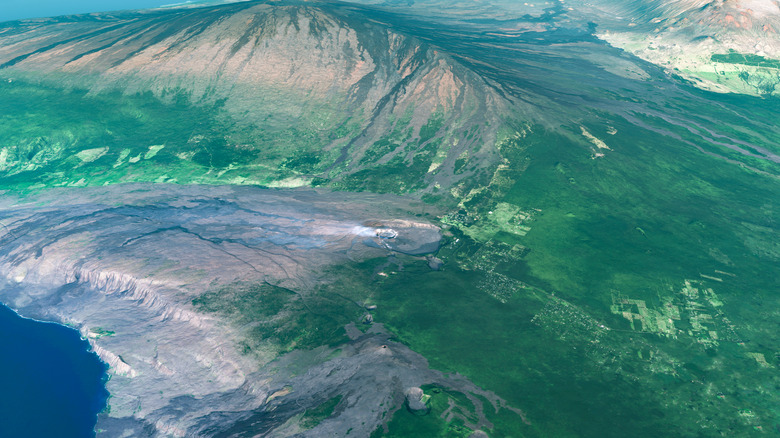What Makes The Four Seasons Resort Hualalai's Coffee So Unique
On the poolside loungers of The Four Seasons Resort in Hualalai, Hawaii, guests aren't chatting each other up about the view from their suites, the gorgeous weather, or their upcoming scuba lesson. At this resort, where rooms cost well over $1,000 a night, all classic Hawaiian vacation experiences go out the window. Sure, you might leave this hotel with fond memories or an embarrassing sunburn, but in time those will fade. However, what you will remember is the smooth, medium-bodied, and locally grown coffee they served.
The hotel has built a reputation for serving the best coffee on the Big Island. So much so that its guests are willing to pay $1,500 per person to tour the fields where the beans are grown, per Food & Wine. Sourced from the Watson Kabei Coffee Estate, a farm in Holualoa, the beans are considered 100% Kona Typica. As a member of the coffee arabica family, Kona Typica is a rare commodity that is exclusively grown in the 30-mile-long region along the island's west coast. According to Kona Coffee, this region is known as the "Kona Coffee Belt." The soil and climate within this strip of land provide some of the finest natural conditions for coffee farming in the world.
Volcanic soil and climate
Coffee is a product of its terroir, and each aspect of the natural environment in which it grows is reflected in its taste. The Kona Coffee Belt sits on the slopes of the Big Island's two volcanoes: Mauna Loa and Hualalai. The soil on these slopes is made up broken-down volcanic ash that has deposited nutrients like phosphorus, potassium, boron, iron, and zinc — all of which coffee plants love, per Barista Magazine. At elevations between 700 and 2,500 feet, the slopes also provide the ideal altitude and climate that allow coffee plants to flourish.
The high elevation of the area provides two essential contributors to the coffee's great reputation: rainfall and temperature. While the coast of the island may hardly see rain, the hills of the coffee belt receive an average of 60 inches a year, per Kona Coffee & Tea. However, rain alone doesn't produce good coffee. The gradient of the hills in the area allows it to flow without over-watering the plants. Additionally, the cooler temperatures in the region force the coffee beans to develop at a slower rate, adding complexity to the coffee's smooth taste. These unique aspects of the Hawaiian land make the coffee at Four Seasons Hualalai such a delicacy.

